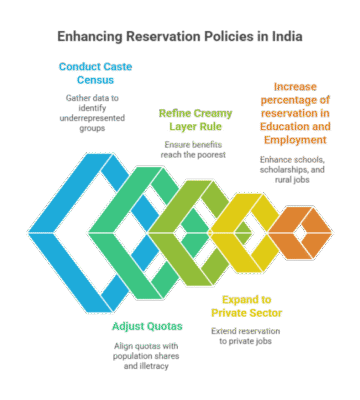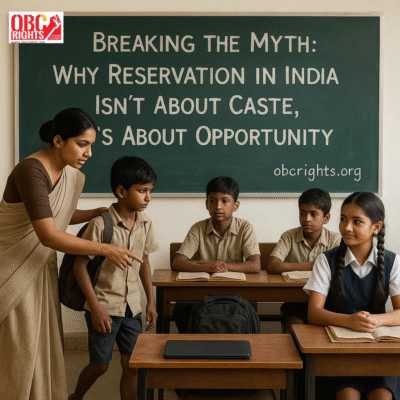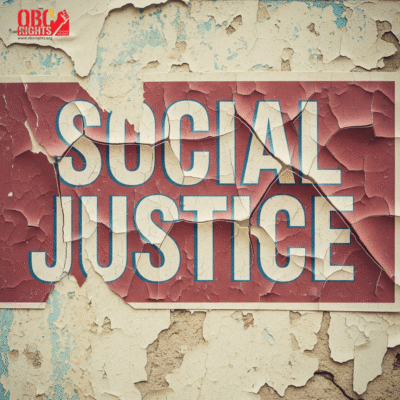Whenever debates about reservation in India arise, the conversation quickly turns into an emotional battle. Some believe it is unfair, while others see it as their only chance for survival in a deeply unequal system. But if we strip away the noise, the truth becomes clear: reservation is not about giving advantages to one group.It ensures that no one is denied the right to education, livelihood, or self-respect.
Why Reservation in India Exists
To understand reservations, we must look at history. For centuries, the Upper caste dictated who could learn, who could work, and who could own property. This exclusion was not accidental; it was systematic. When India became independent, the Constitution pledged equality for all citizens. But equality on paper meant little when generations of people had been denied basic opportunities.
Reservation became a tool to break this cycle. It was never meant as charity. Instead, it acted as a bridge, connecting marginalized communities to spaces they had been kept out of.
Why It’s About Opportunity, Not Caste
Critics often ask: if caste is wrong, why use it as the basis for policy? The answer is simple. Caste is not the goal—opportunity is. But to correct inequality, we must first identify where it exists. Since caste has been the deepest line of exclusion in India, it becomes the measure by which opportunity is restored. The Supreme Court of India endorsed this logic and observed that “Caste” can be a tool to identify backwardness.

In practice, reservation does not guarantee success. It only guarantees access. Students still need to clear exams. Workers must still perform their jobs. What reservation ensures is that they are at least allowed to stand at the starting line of the race.
The Myth of “Merit”
Opponents argue that reservation kills merit. But what they really defend is privilege disguised as merit. Imagine two children: one from an elite city school with private tutors, and another from a neglected rural school. If both take the same exam, can we pretend the ground is level? Closure of 204 Schools in Tamil Nadu shows the faith of poor, backward people in government schools and the standard of education imparted there.
Merit cannot exist without opportunity. Reservation does not lower standards—it makes sure talent from disadvantaged groups isn’t lost. Some of India’s most respected professionals are first-generation learners who entered institutions through quotas. Their success proves the policy’s real aim: equalizing chances, not rewarding caste.
Looking Ahead: Strengthening Opportunity
Reservations must evolve with time. A nationwide caste census is essential to identify which groups are still underrepresented. Without data, policies remain guesswork. Quotas should reflect real population shares, even if that means increasing the percentage. The creamy layer rule must be refined so that benefits reach the poorest. Expanding the reservation into the private sector is also urgent, as most jobs are created there. Alongside this, better schools, scholarships, and rural employment are needed. Only then will opportunity, not privilege, define success in India.

Conclusion: Time to Change the Lens
The truth is simple: reservation is not about caste identity—it is about dismantling the barriers caste created by dominant people. It is not a badge of division; it is a tool of repair. When critics call it caste politics, they miss the point. Without reservation, society would continue to favor the privileged, while pretending to be fair.
If we want a just India, we must see reservation not as caste favoritism, but as what it truly is—an instrument of opportunity to create equality.



